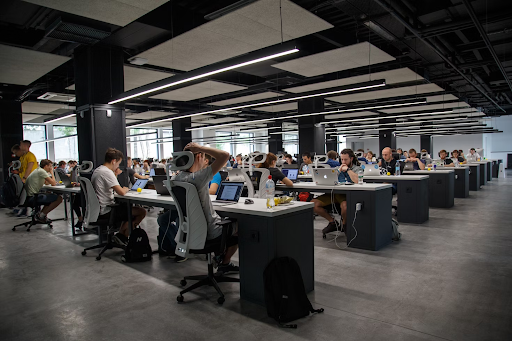As companies and workforces continue to grapple with the issue of return-to-work, fully work-from-home, and hybrid work arrangements, care must be taken to ensure that this contemporary workplace challenge doesn’t further erode or even reverse gains made on the gender transformation front, a leadership expert warns.
Hybrid work trends show that women, who typically carry additional weight on the home front, opt for more time working from home compared to men, who are more likely to return to the office fulltime.
Unfortunately, presenteeism and proximity bias have not gone away with the old paradigm of bums-on-seats as a knee-jerk productivity measure. Which means that managers are still inclined to reward the people they see in the office fulltime, rather than considering the actual contribution of the work-from-home or hybrid employees. Additionally, there is also often an unspoken judgment against people who are not in the office.
This proximity bias is estimated to lead to a 50% reduced likelihood of the fully remote worker to be considered for promotion.
Following the pandemic, domestic circumstances have changed for countless families, including those where both caregivers work fulltime. Divorce, estrangement, and a permanent move to homeschooling for younger children, as well as the loss of support networks that previously helped with children of school-going age are but some of the examples which have led to women, for the most part, now having to juggle additional responsibilities while at the same time being expected to perform at pre-pandemic levels.
Furthermore, when promotional opportunities or project lead roles arise, women who are working at or beyond capacity are either passed over by management or are slow to apply because they are already overburdened by their dual career/home responsibilities.
Naturally, no manager wants to further overload someone that they think is already struggling to cope. However what is lost from consideration here, is the fact that many career women can and do operate at a level of efficiency and hyper productivity that is comparable to their fulltime office peers.
The above factors are now adding up to a situation where the already meagre female leadership pipeline isn’t likely to improve anytime soon, which will devastate companies’ ability to effect the gender transformation in senior leadership most of them are trying to achieve.
Companies should therefore urgently assess the degree to which new ways of working could be disproportionately affecting the women in the organisation, and if necessary, draft clear policies to support these women and nurture their ongoing career progress.
In the USA, author and activist Reshma Saujani leads the Marshall Plan for Moms in recognition of the need to support specifically women’s economic recovery and empowerment. It aims to create sweeping changes in three focus areas: Workplaces (organising C-level executives to transform workplaces in recognition of the additional duties placed almost exclusively on mothers on the home front), Culture (through creative campaigns and compelling thought leadership, changing the way motherhood is seen and valued), and Government (working in coalition with advocacy partners to campaign for benefits including childcare and direct payments).
Although the same issues face many South African women, local circumstances will not easily allow for a similar local plan for mothers. However that does not mean the impact to companies falls away. Exhausted, overworked and under-appreciated female workforces will have the same negative impact on companies here as abroad, in terms of the bottom line as well as gender transformation.
The onus therefore is on companies to take the initiative to ensure that those female leaders they previously identified for career progression do not fall off the radar, and that promising young female leaders are actively identified and mentored. Much has been done before the pandemic to develop leadership pipelines for both racial and gender transformation, and those efforts should not now be discarded in the rush to return to old ways of working.
 Advaita Naidoo is Africa MD at Jack Hammer Global, Africa’s largest executive search firm.
Advaita Naidoo is Africa MD at Jack Hammer Global, Africa’s largest executive search firm.


























